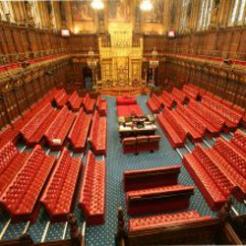An attempt by a crossbench peer to extinguish the controversial Sarah Bill at second reading stage in the Lords failed yesterday after Labour peers decided to abstain from supporting his amendment.
The Social Action, Responsibility and Heroism Bill, or Sarah Bill, aims to encourage volunteering and involvement in social action by reassuring volunteers that if something goes wrong and they are sued for negligence, the courts will have to consider that they were acting for the benefit of society.
Lord Lloyd had hoped to convince the House of Lords that they should decline to even give the bill a second reading, on the grounds that its provisions are already covered in the Compensation Act, and that its purpose of sending a message from government to the courts and the public is not a proper use of legislation.
He described the bill as “useless” and said that no potential volunteer in their right mind will suddenly say to themselves: “Now it is all right, now I can volunteer, now I can sleep easily at night”, as a result of the bill.
He moved an amendment that the House should refuse the second reading; something that has only happened four times in the last seven years.
But most Conservative peers indicated that they would vote against the amendment because they supported the bill, and a number of Labour peers declined to support his amendment because they felt that to refuse a second reading would give the bill an importance it does not deserve.
Baroness Hodgson, the wife of Lord Hodgson, head of the taskforce that produced the report Unshackling Good Neighbours in 2011, said it was a worthwhile bill which would address people’s fears of being sued if something goes wrong.
“The effect of the bill will be to encourage our fellow citizens to step forward to participate and to become more active members of their community,” she said.
But crossbench peer Lord Pannick described the bill as “anodyne and pointless” and a “statement of the legally obvious”.
“I find it very difficult to believe that, if enacted, it is going to make any difference whatever to any case that comes before the courts,” he said.
Lord Hurd, father of former civil society minister Nick Hurd, was the only Conservative peer to break ranks and signal his support for the amendment. He agreed with Lord Lloyd that the bill was unnecessary and would not boost volunteering.
“If you are going to encourage people to volunteer, you have to do what my son has been trying to do until recently – to persuade them to volunteer; to deal with their doubts and fears. It is a public relations exercise. Passing laws is not an adequate way of doing this.”
At the end of the proceedings Lord Lloyd, a retired judge, said he was in a quandary because he had assumed the opposition would support his amendment. Once he learned they would abstain, he withdrew it and the bill had its second reading.
It will now go to Committee stage in the Lords on 18 November.









